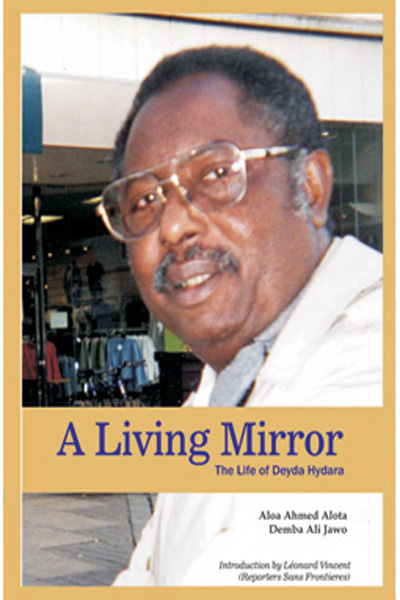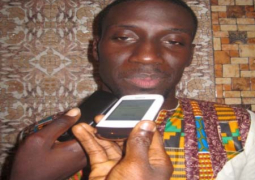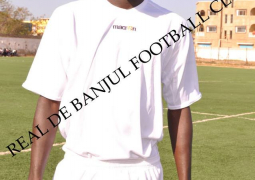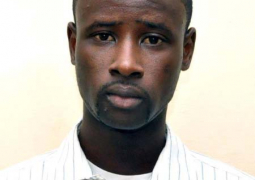
Centred around Deyda Hydara's aspirations, hopes and commitment to being the voice of the voiceless and to champion the cause of the disadvantaged and the under privileged as the principles of his chosen career demand, the narrative, A Living Mirror, The Life of Deyda Hydara unravels with Deyda's experiences as a moor immigrant's child growing up in Banjul, as a student of Literature at the then Universite de Dakar, as a deejay and station manager at Radio Syd, his relationship with his wife Maria and family, his constant battles to start and maintain a newspaper despite his constant run ins and battles with the authorities of The Gambia and climaxes with his untimely death.
From the first page, the authors portray Deyda, even as a child and young adult as a person with a strict sense of moral integrity in whatever he embarked on - he played with fairness, studied with fortitude, assumed parenthood with grace and worked tirelessly as a journalist to inform truthfully and impartially.
Page after page depicts him as a person convinced that his right to inform as a journalist was borne not necessarily out of self-interest, but an authority - a moral authority, an authority guaranteed by journalism principles and an authority enshrined in Section 207 of the National Constitution.
Deyda's life was a life of courage. It is the basis of any true act of courage that for one who received death threats, for one who visualized that for him, the end would mean being gunned down, he stood firm. Firm in his beliefs, firm in his convictions and firm in his determination to fight against social injustices.
The authors' style captivates the reader by intricately weaving an albeit sorrowful and disheartening tale of dashed hope, patience, will, determination and above all Deyda's belief in himself. An abrupt end to his University education did not deter him from carving out a meaningful life for himself and his family; challenge after challenge in the face of adversity through frequent clashes with the governments of the two Republic's of The Gambia never left him wavering or unsure. He courageously led the Gambia Presss Union (GPU) and media executives to fight off efforts at muzzling the press.
Deyda, through the pages of The Point vehemently denounced corruption, decadence and malfunctioning systems of administration. This obviously did not go down well with the powers that be. However, he lived for others and, in the process sought to take their own needs into account in his daily activities even in the face of adversity.
The authors have managed to bring back to life Deyda Hydara, the doting father, the caring husband, the fearless journalist, the pioneer, the role model, the philanthropist and all that Deyda represented whilst he was alive.
The appendixes give an insight into public opinion of the person Deyda Hydara represented. Interviews and tributes paid to him by loved ones, colleagues, religious leaders and social commentators point to one thing - The Gambia has unnecessarily lost a rare species. One who believed in freedom enough to die for it.
They also provide a damning profile of the state of the media in The Gambia by cataloguing events, repressive laws, arbitrary actions, assaults and attacks on journalists and media institutions. The tale it tells is indeed sour.
The book, a must read for all Gambians with a conscience, is a damning indictment of the security apparatus' unwillingness and or inability to bring the culprits of this murder most foul to book.
The authors' must be complemented for their tireless efforts in producing a well-researched, well written product, documenting the life of Deyda Hydara, an illustrious son of The Gambia.




